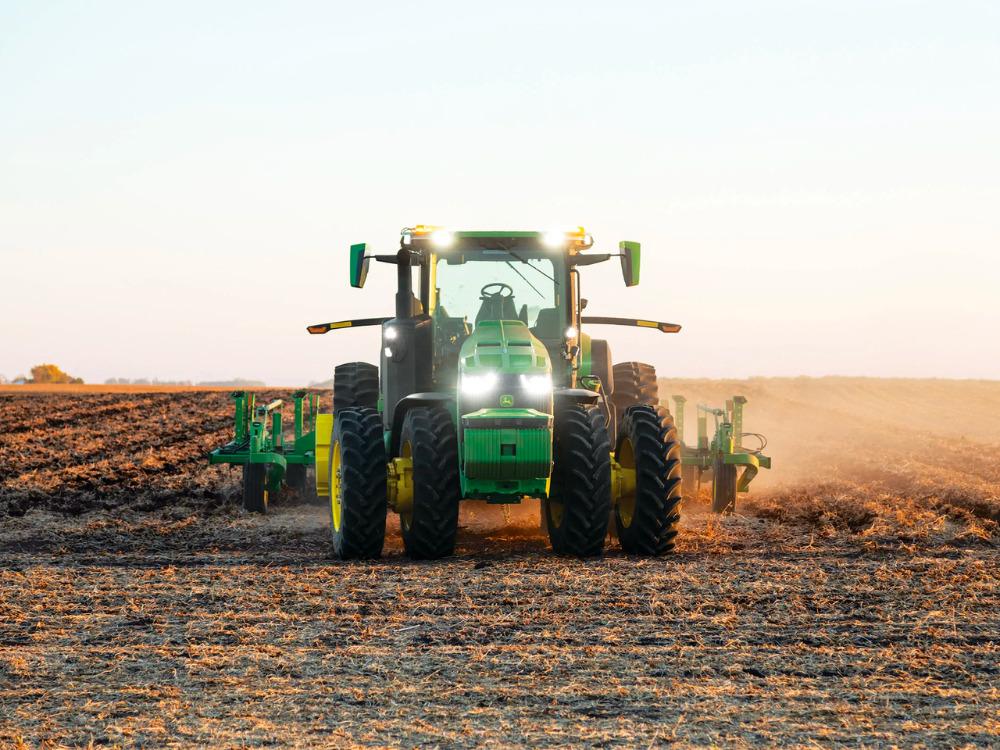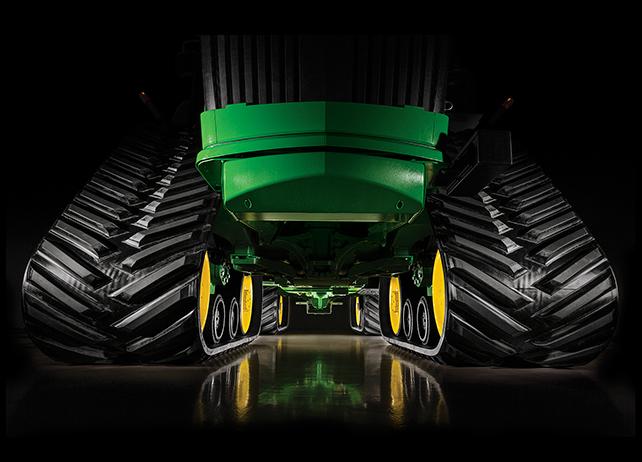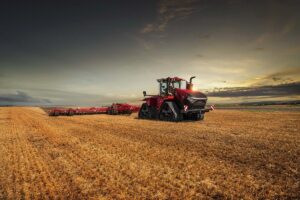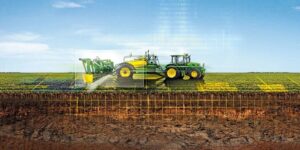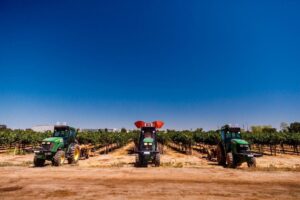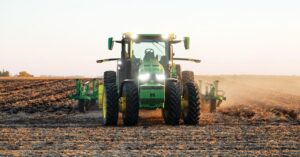In early 2025, John Deere is set to redefine agricultural machinery standards with its latest 9RX tractor model, marking a notable milestone in the evolution of farming equipment. The new machine, characterized by its unprecedented dimensions and capabilities, emerges as the largest tractor in the company’s history. This development represents not only a technical achievement for John Deere but also signals a shift in the scale of modern farming operations. The 9RX’s introduction comes at a time when agricultural operations worldwide are increasingly demanding more efficient and powerful machinery to manage larger farming areas. In an unprecedented move that redefines agricultural machinery standards, the latest iteration of the tracked titan emerges with groundbreaking specifications. The new model combines raw power with sophisticated technology,featuring a massive 850-horsepower engine that sets new industry benchmarks.
The machine’s commanding presence is promptly apparent through its enhanced track system,now 20% wider than its predecessor,providing superior ground contact and stability across challenging terrains. four independant tracks, each measuring 36 inches in width, work in harmony to distribute the vehicle’s impressive 75,000-pound weight.
Engineers have entirely redesigned the cab surroundings, incorporating a 360-degree camera system displayed on a 15-inch high-resolution touchscreen.The sophisticated CommandView IV operator station features advanced noise reduction technology, maintaining interior sound levels below 65 decibels even at full throttle.
Underneath its imposing exterior lies a revolutionary power management system. The new e-TORQ drivetrain combines electric and mechanical power transmission, reducing fuel consumption by 30% compared to conventional systems. This hybrid approach not only optimizes performance but also significantly reduces environmental impact.
The integrated precision farming suite now includes real-time soil analysis capabilities, with sensors continuously monitoring ground conditions and automatically adjusting track tension and power distribution.Machine learning algorithms process this data to optimize performance parameters, ensuring maximum efficiency across various agricultural operations.
Storage capacity has been dramatically increased, with a 400-gallon fuel tank enabling extended operation times. The hydraulic system boasts an impressive 165 gallons per minute flow rate, supporting the most demanding implements and attachments currently available in the market.
Climate control features have been enhanced with a dual-zone system that maintains optimal operating conditions regardless of external temperatures. The pressurized cab includes advanced air filtration,protecting operators from dust and agricultural chemicals.
Maintenance intervals have been extended through the implementation of self-monitoring systems and synthetic lubricants designed specifically for high-stress applications. The integrated diagnostic system can predict potential issues before they occur,scheduling maintenance activities during natural operational downtimes.
Connectivity features include satellite-based communication systems, enabling real-time data exchange with farm management software and remote diagnostic capabilities. The machine’s performance metrics are continuously uploaded to a cloud-based platform, allowing for detailed analysis and optimization of farming operations.
The articulated steering system has been refined with electrohydraulic controls, providing unprecedented precision in tight spaces despite the machine’s considerable size. Additional features include automatic implement recognition, adjustable ballasting systems, and integrated load sensing capabilities.
The enhanced design represents a significant leap forward in agricultural machinery,combining innovative technology with practical functionality. This advancement in farming equipment capability signals a new era in agricultural productivity and operational efficiency.